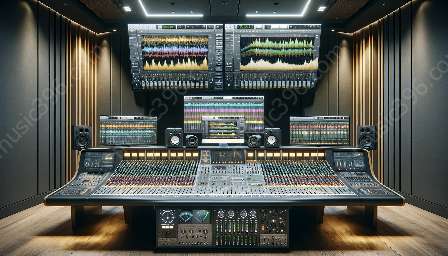Sound editing is a crucial skill for audio professionals, providing numerous benefits that enhance their abilities to create high-quality audio content. This cluster explores the advantages of learning sound editing, its compatibility with sound editing basics, and its relevance to audio production.
Importance of Sound Editing for Audio Professionals
Sound editing involves the manipulation and enhancement of audio recordings to achieve the desired quality and effect. For audio professionals, mastering sound editing is essential for producing multimedia content, including music, podcasts, films, and video games.
When exploring sound editing basics, professionals delve into the technical aspects of audio manipulation, such as trimming, fading, equalization, and noise reduction. Understanding these fundamentals equips them with the knowledge and skills required to excel in the field of audio production.
Compatibility with Sound Editing Basics
Learning sound editing complements the understanding of sound editing basics by providing advanced techniques and tools for refining audio content. With in-depth knowledge of sound editing, professionals can further develop their editing proficiency and creativity, enabling them to produce audio that meets industry standards.
Audio professionals also benefit from learning sound editing as it allows them to apply complex editing processes, such as multi-track mixing, audio restoration, and mastering. This compatibility empowers professionals to expand their skill set and tackle diverse audio production challenges with confidence.
Advantages of Acquiring Sound Editing Skills
Professionals who invest in learning sound editing gain a competitive edge in the audio industry. By acquiring sound editing skills, they can provide clients with refined, polished audio content that stands out in an increasingly competitive market.
Furthermore, sound editing proficiency enables professionals to efficiently collaborate with content creators, musicians, and producers, as they can effectively communicate and execute editing specifications. This streamlined collaboration enhances productivity and fosters creativity in audio production projects.
Relevance to Audio Production
Sound editing plays a pivotal role in the entire audio production process, from recording and editing to mixing and mastering. Audio professionals who are adept at sound editing can elevate the overall production quality and deliver exceptional results to their clients.
Moreover, learning sound editing enhances professionals' ability to adapt to evolving technological advancements in the audio industry. By staying updated with the latest sound editing software and techniques, audio professionals can remain at the forefront of innovation and meet the changing demands of the market.




























